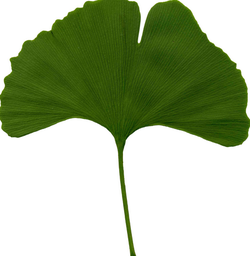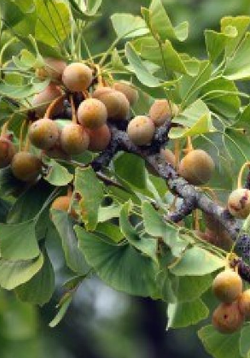 Ginkgo biloba, ginkgo Ginkgo biloba, ginkgo We can think of at least 180 great forest garden & perennial crops for cold climate Sweden. Want to hear about them? Over the course of the next year we will profile 5 a week on the blog. Perennial plants and crops offer a low energy, oil & resource input based foundation for future-proof agricultures. By default if an agriculture is to be called regenerative the bottom line is that it must be soil building, not soil depleting. Relentless deep tillage & poor soil husbandry (wifery?!) contributes to the majority of the 24 billion tons of topsoil lost every year on planet water. We are going to be focused on holistic polyculture grazing and perennial production at ridgedale over most of the site as this represents the most effective way to restore our degraded landscape, produce high value produce and ensure the future resource base we are managing holistically for in our decision making.  Genus Ginkgo Species biloba Common Name ginkgo Form large tree Habit clumping Origin Asia Light sun Moisture mesic Edible nuts, medicinal Ginkgo biloba (銀杏) is a deciduous Tree growing to 30 m (98ft) by 9 m (29ft) at a slow rate. It is a unique species of tree with no living relatives. The ginkgo is a living fossil, recognisably similar to fossils dating back 270 million years. The flowers are dioecious (individual flowers are either male or female, but only one sex is to be found on any one plant so both male and female plants must be grown if seed is required) and are pollinated by Wind. The plant is not self-fertile. The seed contains a mildly acrimonious principle that is unstable when heated. It is therefore best to cook the seed before eating it to ensure any possible toxicity is destroyed. This acrimonious principle is probably 4'-methoxypyridoxine, which can destroy vitamin B6. It is more toxic for children, but the raw nuts would have to be eaten often over a period of time for the negative effects to become apparent. Avoid if known allergy to Ginkgo or cross-react species (cashew, poison ivy). Not recommended for children. Avoid if on blood thinning medication (e.g. warfarin). Discontinue prior to surgery. Avoid parenteral use as possible hypotension, shock, dizziness. Excessive seed ingestion can cause 'gin-man' food poisoning. Seed can be eaten raw (in small quantities), or cooked. A soft and oily texture, the seed has a sweet flavour and tastes somewhat like a large pine nut. The baked seed makes very pleasant eating, it has a taste rather like a cross between potatoes and sweet chestnuts. The seed can be boiled and used in soups, porridges etc. It needs to be heated before being eaten in order to destroy a mildly acrimonious principle. The seed is rich in niacin. It is a good source of starch and protein, but is low in fats. These fats are mostly unsaturated or monosaturated. A more detailed nutritional analysis is available. An edible oil is obtained from the seed. OUR FRIENDS AT PFAF HAVE AN AMAZING DATABASE OF SPECIES (UK BASED);
0 Comments
Leave a Reply. |
Details
Like us on FB Below for regular updatesStay up to date with customized updates you want to receive
Upcoming coursesArchives
December 2016
Categories
All
|

 RSS Feed
RSS Feed